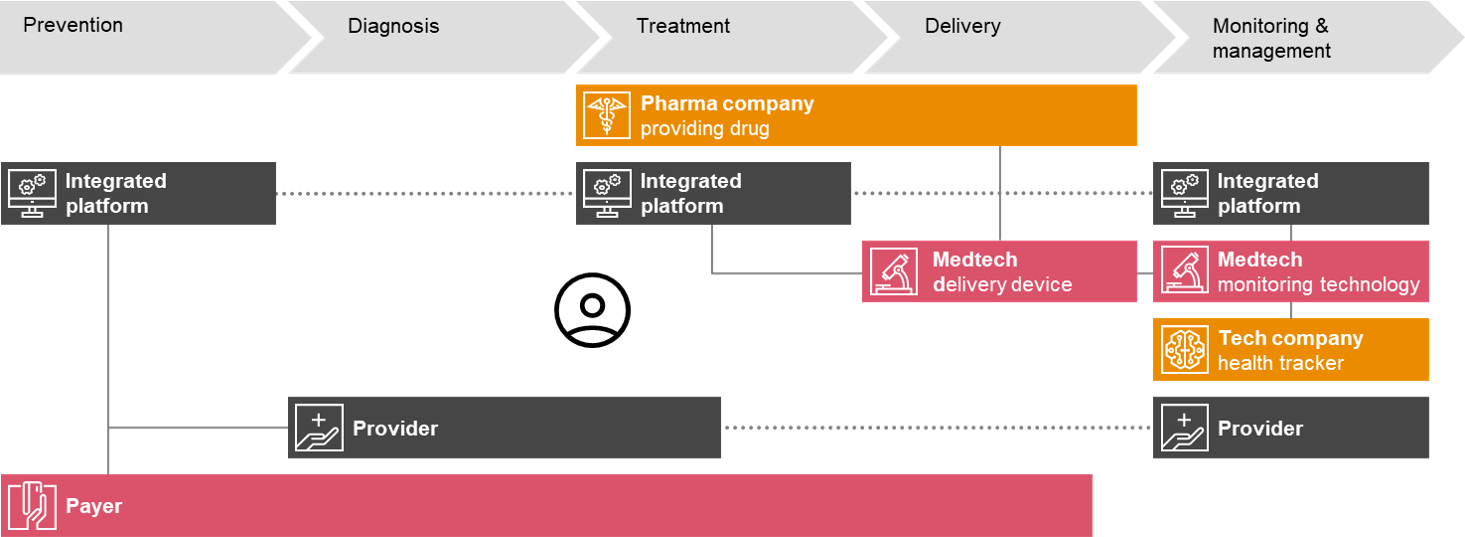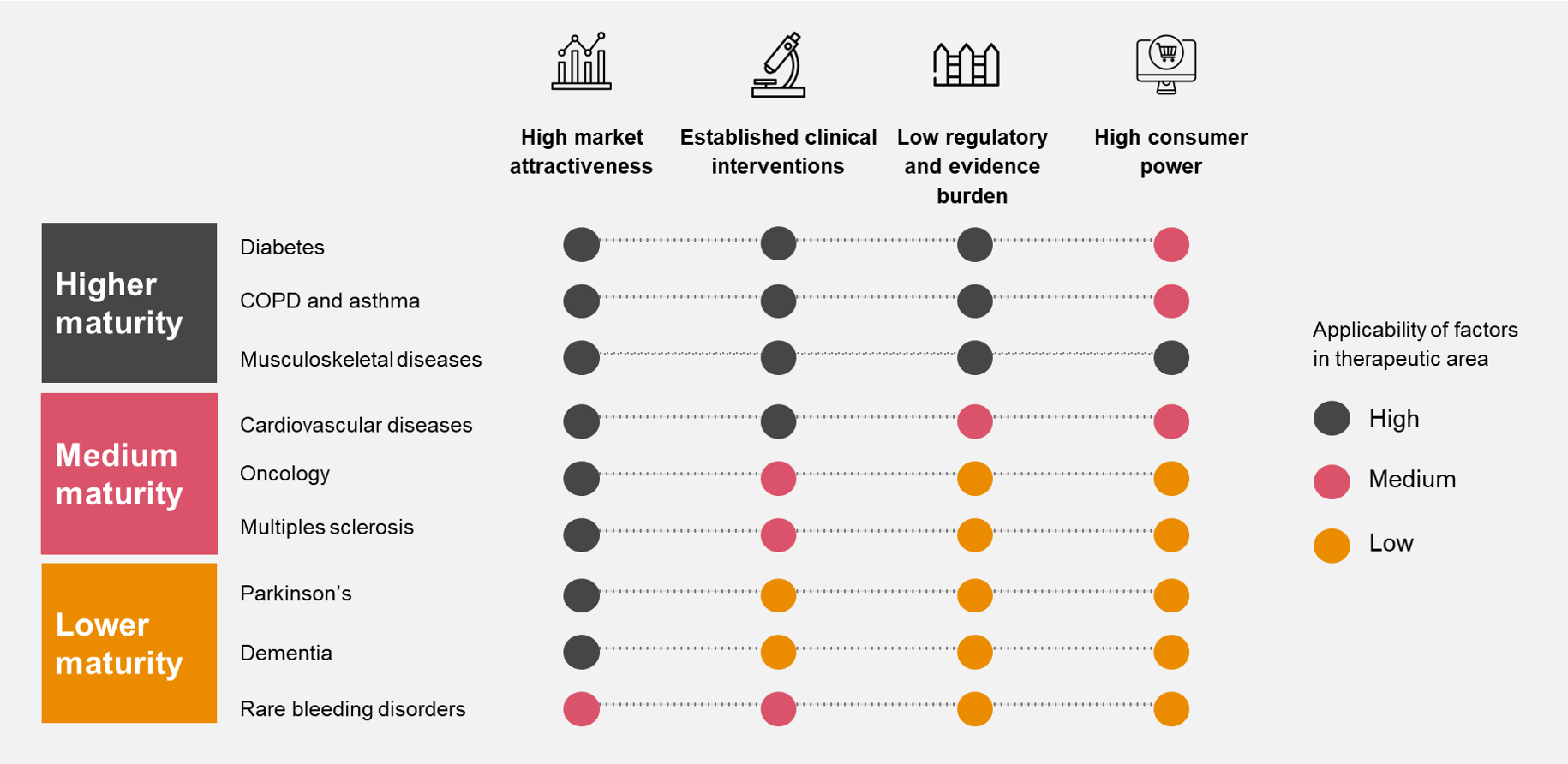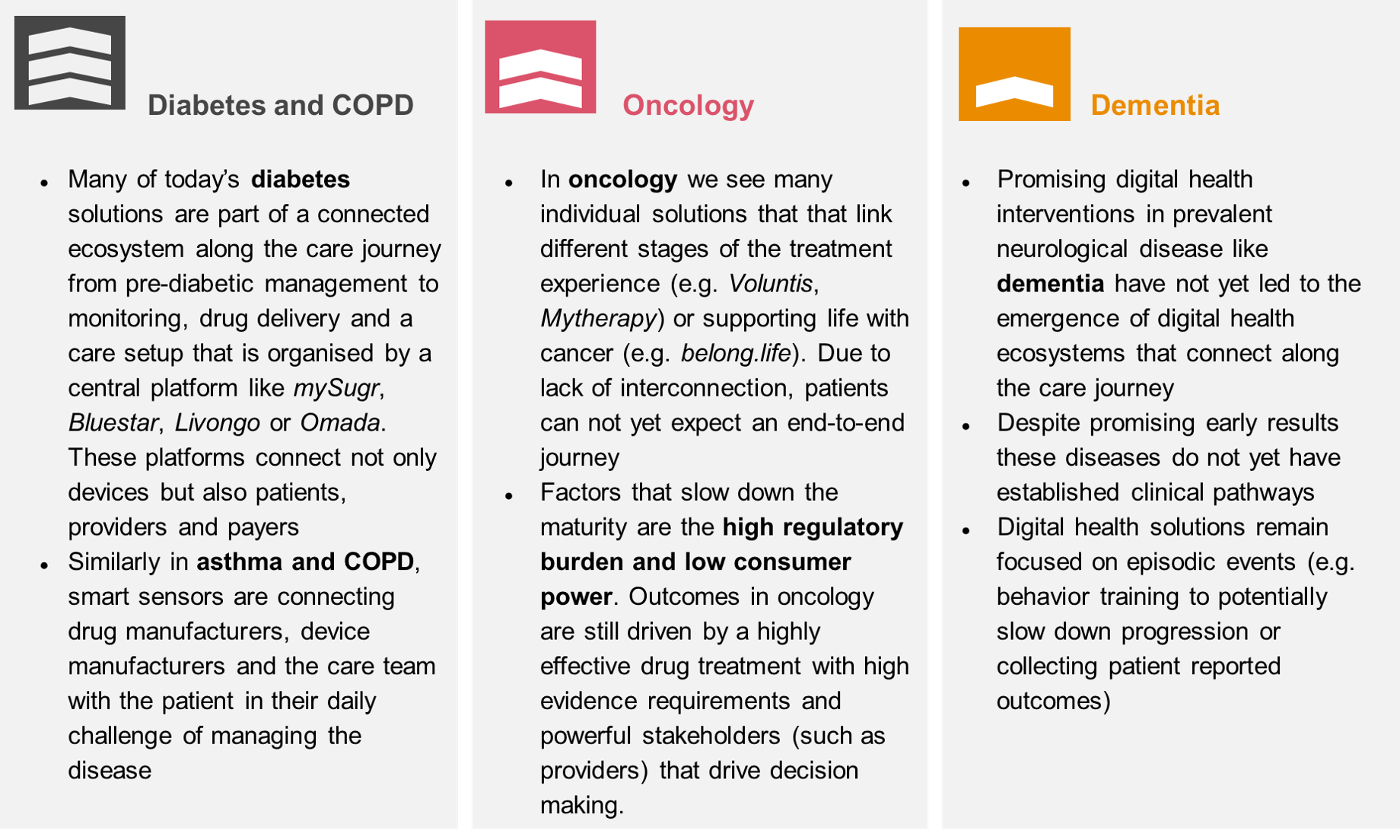{{item.title}}
{{item.text}}

{{item.text}}
Mylène Jeandupeux
Director, PwC Switzerland
Theodore Milonas
Senior Manager, PwC Switzerland
Jonathan Sander
Senior Manager, PwC Switzerland
Digital ecosystems have disrupted many industries and left a mark on our daily lives, from how we travel to the way we do our daily shopping. Despite the acceleration the Covid pandemic has brought to the sector, healthcare is still behind the curve. But this doesn’t mean that digital health ecosystems won’t significantly impact the way we receive treatment in the future.
In this article we highlight key factors driving the maturity of digital ecosystems in different disease areas and share some insights into how companies can position themselves to remain successful in this changing environment.
To ensure common ground, first we should define what we mean by a digital health ecosystem:
The way diabetes can now be treated is a good example of a mature ecosystem (Figure 1): The patient not only has access to insulin through a smart delivery system informed by a continuous monitoring device, but can also choose between different digital platforms that offer virtual care and coaching. All these systems are interoperable to a large extent, despite being supplied by different solution providers.
In contrast, the prescription digital therapeutics for treating attention deficit hyperactivity disorder (ADHD) are still standalone solutions that are not yet linked to a drug, diagnostic system or behavioural coaching solution. For this reason, we would not yet consider this to be a digital health ecosystem.
Figure 1: Non-exhaustive example of how stakeholders may collaborate in a digital health ecosystem across the patient journey (modelled after diabetes)
Given that digital health ecosystems will be an important driver of change, we advise life science companies to proactively shape their role in these emerging networks. If they miss the opportunity now, they could be forced into a follower role, potentially having to accept standards set by their competitors, losing opportunities to partners or jeopardising their existing competitive advantage.
Digital health ecosystems will be an important driver in healthcare because…
The complexity of conditions in a real work setting requires a combination of data from various sources to generate insights and support patients along the care journey.
Technological advances such as AI, remote monitoring and virtual care are disrupting the traditional healthcare models and opening the sector for new players.
The ecosystem players can specialise in parts of the delivery chain and combine their capabilities in a superior connected experience.
Customers expect the same seamless experience in healthcare that they are experiencing from other industries. This includes to option to customise modular solutions based on their needs.
Within the healthcare sector we see some therapeutic areas that have already established more mature ecosystems with partnerships and data interoperability along the delivery chain. In our work with pharma and medtech companies, we have established four common factors that characterise therapeutic areas with more mature digital health ecosystems:
To illustrate this pattern, we have mapped the four factors to the maturity of several digital health ecosystems (Figure 2). We discuss some of the examples in the inset (Figure 3). For instance, we find indications that the high regulatory and competitive barriers in disease areas such as oncology and multiples sclerosis have led to lower maturity than in areas such as diabetes or COPD. In complex neurological and cognitive diseases, the lack of established clinical interventions seems to be a factor that has held back the establishment of interoperable digital health networks.
Figure 2: The four factors mapped to the maturity of several digital health ecosystems
Figure 3: The different levels of digital health ecosystem maturity can be observed through therapeutic area examples
Pharma and life science companies that operate in a lower-maturity environment generally have more freedom to actively shape their ecosystem. However, this often goes hand in hand with a longer investment horizon at a higher risk premium.
Regardless of their industry’s digital health maturity, we advise companies to develop their digital health strategy. In the process, we help our clients answer some fundamental questions:
Examples include:
This often includes:
Finding answers to these and other strategic questions is often challenging. At the same time, it’s a unique opportunity to drive change at a fascinating time in healthcare. If you want to learn more about our digital health practice, feel free to reach out to us.
#social#


Senior Manager, Customer Transformation, Pharma and Life Sciences, PwC Switzerland
Tel: +41 76 309 92 57

Senior Manager, Commercial Strategy for Pharma and Life Sciences, PwC Switzerland
Tel: +41 058 792 18 79




